How Giant Companies like P&G are Building Ethical Sourcing Models?

Strong 8k brings an ultra-HD IPTV experience to your living room and your pocket.
How Giant Companies like P&G are Building Ethical Sourcing Models?
[Image Source - Inc42]
P&G is a globally recognized household name. No need to mention their focus on innovation, quality uniformity & their unwavering commitment to their conscience in their ethical sourcing models. In the fast-moving consumer goods industry, this is a giant brand with stands with its head held high. Like its competitors, P&G too weaves the narrative of sustainable value creation by seamlessly integrating ethics in the sourcing models. Ethical supply chains have been a priority for organizations lately, as it is also a part of their social responsibility effort. Effective and ethical supply chains prioritize environmental sustainability each time without compromising on sourcing procedures if it incurs extra costs.
II. Why Ethical Sourcing Matters: Beyond the Bottom Line
Responsible sourcing subsequently plays multiple roles than just “sourcing sourcing.” It protects the brand integrity and aligns the business with long-term consumer expectations. A key aspect of sustainable sourcing is ensuring that goods are procured responsibly and sustainably. It highlights several points, like paying close attention to human rights, labor practices, environmental impact, and fair-trade principles. A diverse supply chain always makes your operations quite resilient. As brands like P&G are in interaction with multiple suppliers from different regions or backgrounds, and their capacities differ too. It reduces the risk of dependency on a single source. There are some more points to this:
Brand Reputation: When a brand is devoted to ethical sourcing and has proof of being published, there’s no better way for a brand to hype itself than this. As the procurement process includes many aspects, consumers gain trust & start exploring more products of the brand. Once suited, the consumers may make the instant shift to the brand rather than its competitor. As consumers witness positivity in society, it creates a ripple effect that encourages broader change across industries.
Prevents prestige or legal fallout: Ethical sourcing isn't just about doing the right thing, it’s a strategic move. For large companies, ensuring responsible procurement helps prevent prestige loss and legal fallout. When supply chains are transparent and ethical, businesses not only protect their brand image but also reduce the risk of costly regulatory or reputational setbacks.
Environmental stewardship: Environmental stewardship is a core pillar of P&G’s sustainable sourcing strategy. The company emphasizes sustainable agriculture, deforestation-free sourcing, and lifecycle assessments to reduce environmental impact. These initiatives ensure that every product reflects a commitment to long-term ecological balance and responsible global citizenship.
Mitigating Risks: Mitigating risks through ethical sourcing helps companies like P&G avoid legal penalties, reputational fallout, and supply chain breakdowns. By ensuring compliance with labor, environmental, and trade regulations and partnering with transparent suppliers, P&G builds resilience, protects brand equity, and ensures uninterrupted operations across its global sourcing networks. Ethical sourcing enables companies like P&G to proactively address risks by enforcing responsible practices across their supply chains. This approach minimizes the chances of legal violations, public backlash, and supplier unreliability, safeguarding both operational continuity and corporate reputation in increasingly regulated and socially conscious global markets.
To build ethical sourcing models, companies like P&G implement robust supplier codes of conduct and audit systems. These frameworks ensure that every supplier aligns with the company’s values on sustainability, labor rights, and responsible practices.
Supplier Codes of Conduct and Auditing
[Source - P&G Good Everyday]
Defining Clear Ethical Expectations: In the context of ethical sourcing, P&G establishes a Supplier Code of Conduct (SCoC) that outlines expectations around labor practices, human rights, environmental responsibility, health and safety, and legal compliance. Suppliers are required to follow these standards as a condition for partnership.
Alignment with Global Standards: The SCoC is aligned with international guidelines such as the UN Guiding Principles on Business and Human Rights, ILO Conventions, and environmental protocols. This ensures suppliers operate within a globally recognized ethical framework.
Mandatory Compliance and Acknowledgment: All suppliers must formally acknowledge and commit to the code. This agreement serves as a baseline for accountability and lays the foundation for long-term ethical collaboration.
Regular Ethical Audits: P&G conducts regular audits—both scheduled and surprise checks—to evaluate supplier compliance. These audits assess everything from labor conditions and environmental impact to operational transparency.
Third-Party Verification: To ensure objectivity, P&G often partners with third-party auditing firms. These independent assessments reduce bias and provide a clearer picture of supplier performance.
Corrective Action Plans: If violations are found, P&G works with the supplier to implement a Corrective Action Plan (CAP) with clear timelines and expectations. Repeated or severe violations can result in the termination of the business relationship.
Continuous Improvement Programs: Beyond compliance, P&G supports suppliers through training, tools, and resources to help them continuously improve ethical standards and innovate sustainably.
The Broader Impact and Lessons Learned
[Source -Procter & Gamble]
Procter & Gamble (P&G) has made sustainable sourcing a cornerstone of its ethical supply chain model. The company actively works to ensure that raw materials are responsibly and sustainably sourced to minimize environmental and social impact.
Palm Oil Sourcing and Traceability: P&G is committed to sourcing 100% of its palm oil and palm kernel oil responsibly. The company supports RSPO (Roundtable on Sustainable Palm Oil) certification and requires suppliers to trace palm oil to known mills and plantations, ensuring zero deforestation and respect for human rights.
Forest Conservation Through Responsible Pulp Sourcing: For paper-based products, P&G implements strict guidelines to source pulp from responsibly managed forests. It adheres to Forest Stewardship Council (FSC) and Programme for the Endorsement of Forest Certification (PEFC) standards, ensuring no contribution to illegal logging or ecosystem destruction.
Sustainable Cotton Sourcing: P&G’s fabric and home care products rely on cotton sourced through sustainable farming practices. The company collaborates with initiatives like Cotton LEADS™, which supports responsible cotton production with reduced water use and pesticide application. Hindrances to ethical sourcing have no room in the organization.
Certified Renewable Ingredients: P&G increasingly uses plant-based and renewable ingredients in products like detergents and skincare. These are often certified under sustainability programs to ensure reduced carbon footprints and ethical farming methods.
Supplier Engagement and Training: P&G doesn’t just set standards—it actively educates and trains its suppliers on sustainable sourcing practices. This includes support for smallholder farmers and initiatives that help improve agricultural yields while protecting biodiversity
Conclusion:
As global markets evolve, a profound shift is taking place, one where conscience and commerce are no longer at odds but deeply interconnected. Ethical sourcing is no longer a box to check; it's a powerful testament to a brand’s values, responsibility, and long-term vision. Companies like P&G are leading this movement with purpose, proving that profitability and integrity can grow hand in hand.
By embedding ethics into every layer of their supply chain, these industry giants are setting a gold standard for responsible business practices. Their efforts go beyond compliance—they empower communities, protect ecosystems, and inspire a new generation of business leaders to prioritize people and the planet alongside profits.
Uncover the latest trends and insights with our articles on Visionary Vogues
Note: IndiBlogHub features both user-submitted and editorial content. We do not verify third-party contributions. Read our Disclaimer and Privacy Policyfor details.







